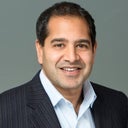If diet & exercise stays constant before/after liposuction, what happens to the energy store in the body that is lost?
I eat a fairly balanced diet and exercise 4-6 days/week which likely won't change as this is my lifestyle so my weight has been fairly constant (+/- win/smr, respectively) throughout my adult life. If I'm consuming the same amount of calories that maintains the pre-lipo weight, wouldn't I eventually regain that energy somewhere in the body? So for lipo to be permanent, one would need to consume less calories equal to the amount of energy store lost via lipo?






